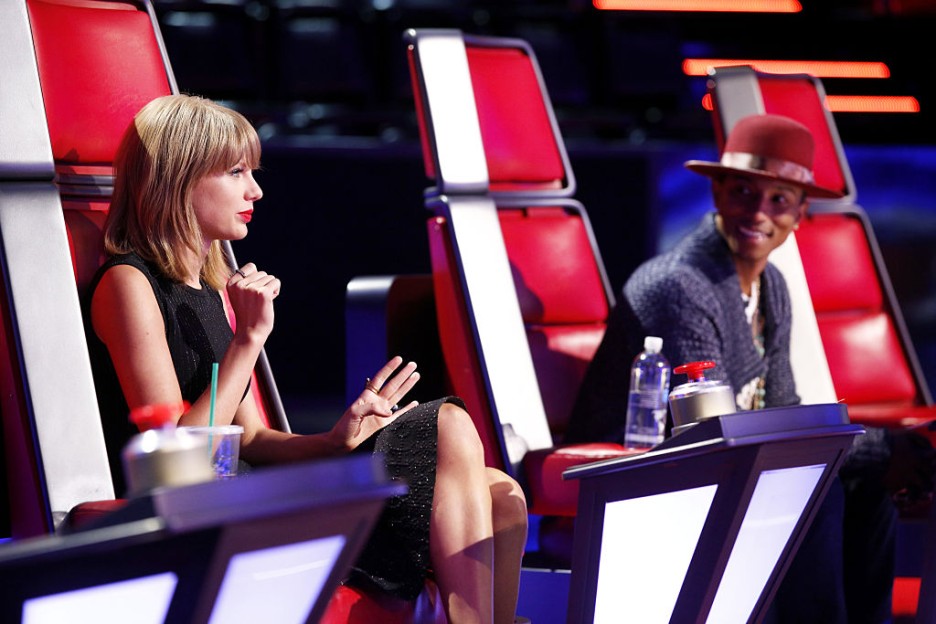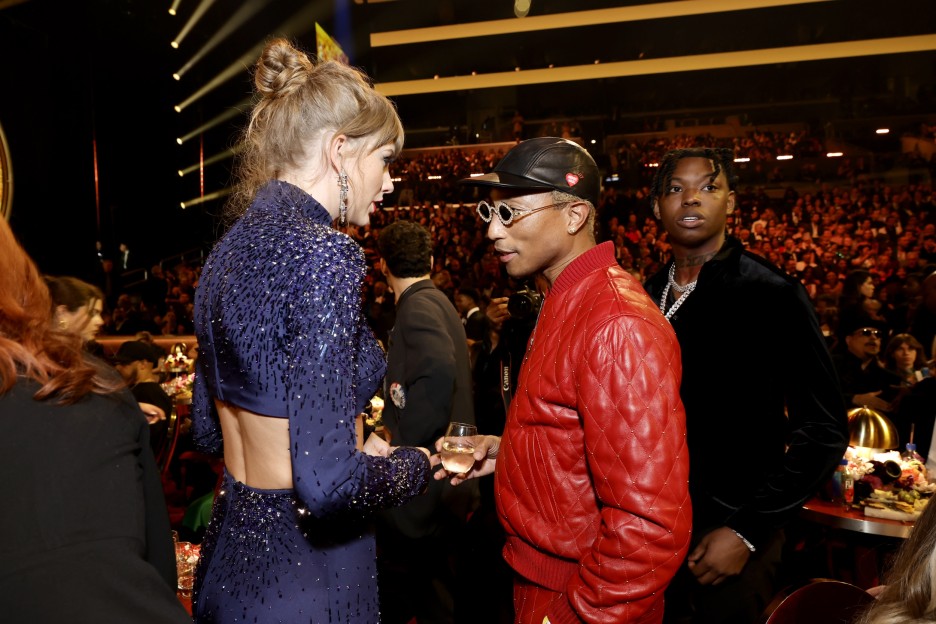Pharrell Williams Denies Insulting Taylor Swift After She Endorsed Kamala Harris

After being accused of dissing Taylor Swift, Pharrell Williams is setting the record straight.
The multi-hyphenate was selected as GQ's Designer of the Year, honored for his work as the Louis Vuitton men's creative director.
In his interview with the outlet, Williams was asked about his views on politics, which led to bringing up his controversial comments to The Hollywood Reporter, where he said he gets annoyed at "celebrities trying to tell you [who to vote for]." He didn't drop any names, but many speculated that he was throwing jabs at Swift, who voiced her support for Kamala Harris on social media the day before his comments were published.
When the GQ interviewer noted that the headlines "became that [he] dissed Taylor," the music producer pointed out that misleading media coverage pits people "against each other." He added, "I love Taylor. She knows that."
Williams, 51, assured he's actually a big Swiftie. "In fact, I bought a 1989 Taylor T-shirt online last year, and I was walking around here with it tucked into my jeans. I love her," he shared. "I love people, bro. That was some right-wing troll s**t. But I heard something the other day that made the most sense in the world: Right-wing, left-wing, all the same bird."

Read More: Lil Pump Calls Out Eminem, Taylor Swift After Trump Election Win: 'F**k You Losers'
This clarification will surely make Swifties happy, as many of the pop megastar's fans came to her defense after perceiving his remarks as being directed towards her. However, he's been a vocal supporter of Swift's for years.
In 2020, Variety asked Williams his thoughts on Scooter Braun purchasing the rights to the singer's masters. "I felt for her and not being able to be in control of it," he said at the time. "There's a system in place that's just all wrong. He's a businessman and he also represents artists, so from his point of view he's just making an acquisition of something that he felt would be a good investment. But the artist should have the opportunity [to retain ownership], and I don't know whether she did or she didn't."





